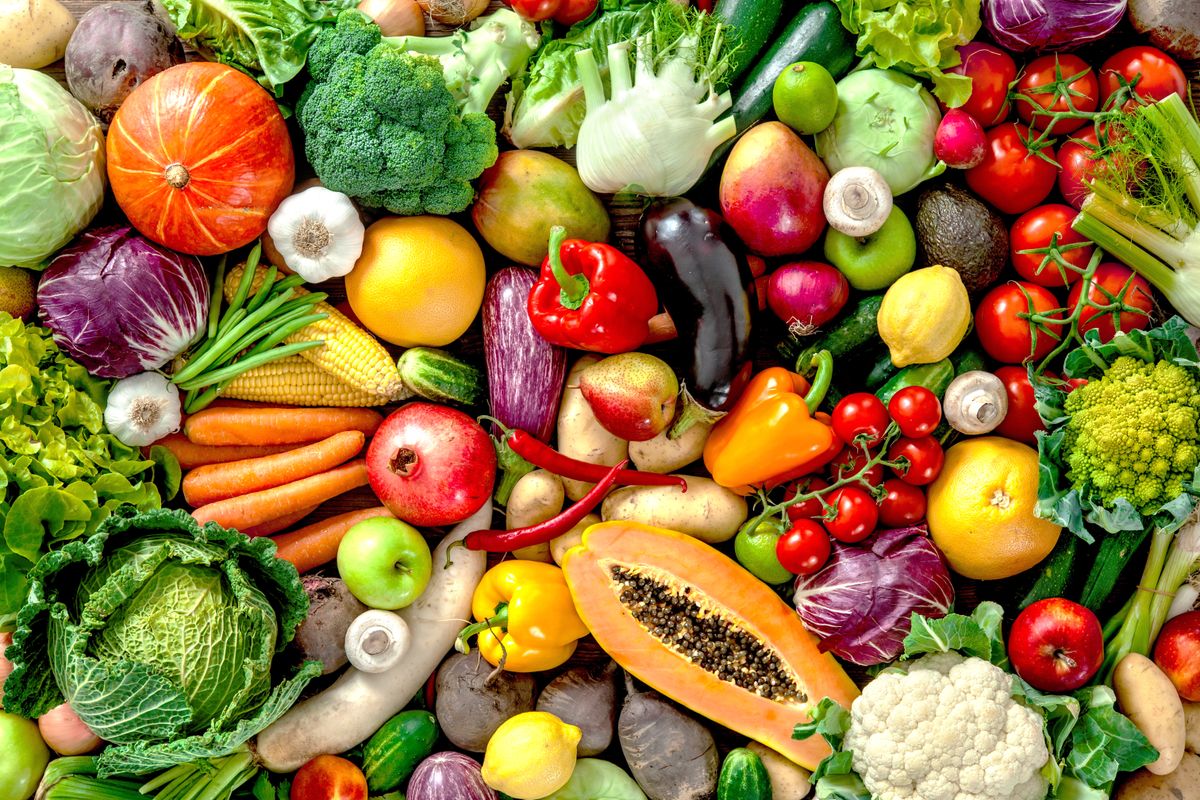When it comes to a healthy diet, incorporating vegetables is always a winning choice. Not only do they offer a range of nutritional benefits, but certain vegetables have also earned the title of being the best for weight loss. According to the esteemed Harvard School of Public Health, a diet rich in vegetables can have a significant impact on your overall well-being. It can help prevent heart disease, manage blood pressure and blood sugar levels, and even improve digestive health. Moreover, scientific studies have shown that vegetables play a vital role in effective weight loss. For instance, a study published in the European Journal of Clinical Nutrition revealed that increasing vegetable consumption could lead to enhanced weight loss results.
While all vegetables contribute to overall health, it's worth noting that specific vegetables possess qualities that make them ideal for weight loss. These weight-loss-friendly veggies are naturally low in calories while being high in fiber and water content. Consequently, they offer a satisfying and filling experience, making them a great substitute for high-calorie snacks. Furthermore, the fiber found in vegetables aids in digestion, supports gut health, and helps manage blood sugar levels, thus amplifying your weight loss efforts. Additionally, certain vegetables contain unique antioxidants that have been scientifically linked to promoting weight loss.
To shed more light on the topic, we sought the expertise of seasoned dietitians who provide insights into the top vegetables to include in your weight loss journey. Continue reading to discover their recommendations and expert advice.
1) Carrots
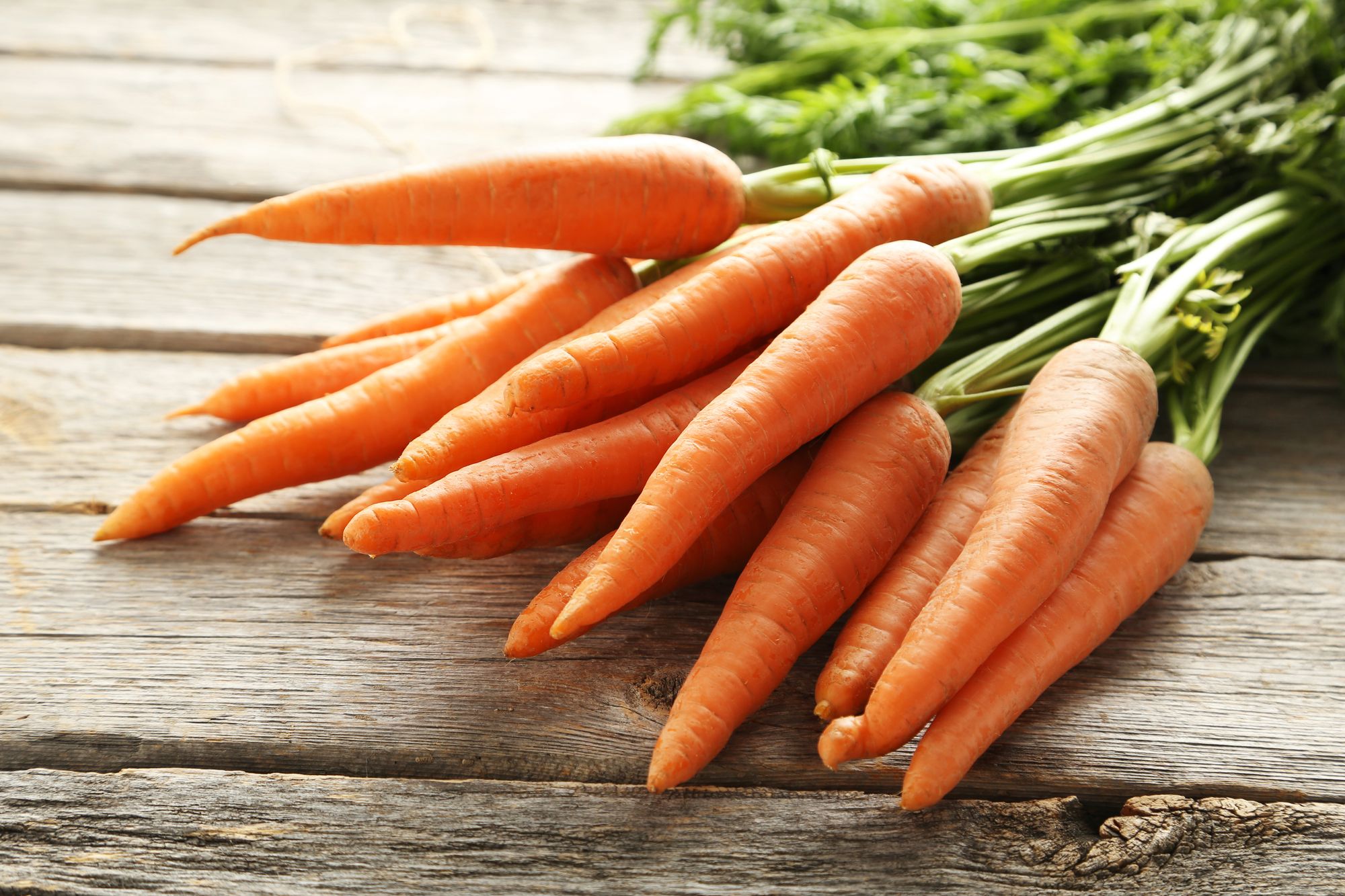
PER 1 CUP CHOPPED: 52.1 calories, 0.3 g fat, 88.3 mg sodium, 12.3 g carbs (3.58 g fiber, 6 g sugar), 1.19 g protein
Carrots are often associated with promoting eye health, but they offer much more when it comes to weight loss. Packed with essential vitamins and nutrients, this orange vegetable can contribute to your weight-loss efforts in various ways.
Firstly, carrots are a good source of fiber, providing over 3.5 grams per cup. The fiber content helps keep you feeling full and satisfied while supporting a reduction in overall calorie intake. According to the British Journal of Nutrition, the lower calorie content of carrots makes them a valuable addition to a weight-loss diet.
Furthermore, carrots play a role in promoting healthy digestion and maintaining the proper functioning of the digestive tract. The Journal of Food Science and Technology highlights the digestive benefits of carrots, emphasizing that a well-functioning digestive system is vital for weight loss. By keeping things regular, carrots can support your weight-loss efforts.
Despite their natural sweetness, carrots contain about 6 grams of sugar per cup—natural sugars, that is. This hint of sweetness allows you to add mild, sweet flavor to your dishes without relying on extra sugar. By incorporating carrots, you can keep your sugar calorie intake in check, which is beneficial for weight loss.
2) Peas
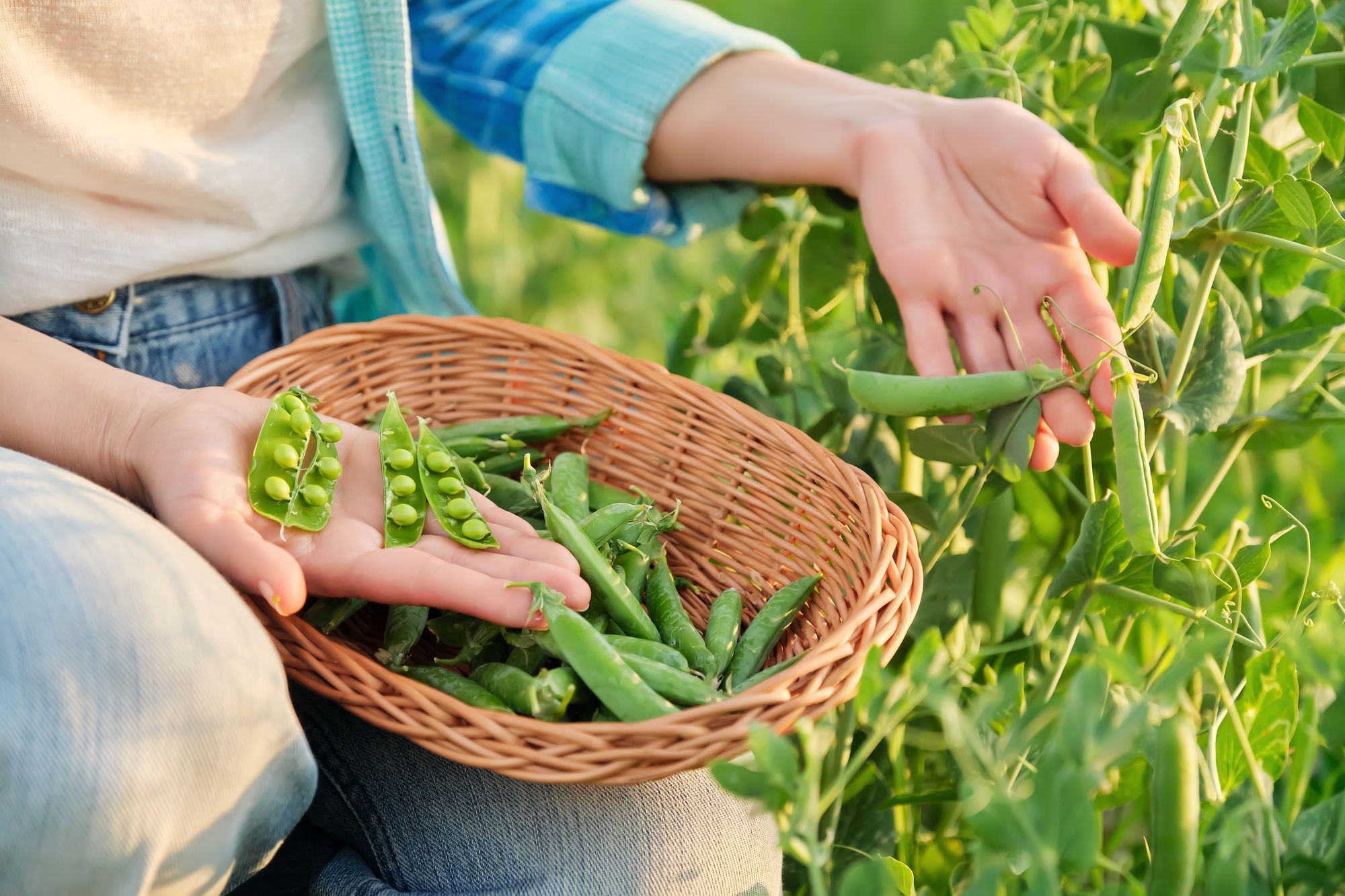
PER 1 CUP: 117 calories, 0.58 g fat, 7.25 mg sodium, 20.9 g carbs (8.26 g fiber, 8.22 g sugar), 7.86 g protein
Peas often go unnoticed due to their small size and sometimes being perceived as mere filler vegetables. However, once you uncover their nutritional value, you might reconsider overlooking them. Just a cup of peas contains over 8 grams of fiber, making them one of the highest-fiber vegetables available. Additionally, peas boast one of the highest protein counts among vegetables, with almost 8 grams per cup. Extensive research emphasizes the significance of protein in weight loss diets. Protein plays a crucial role in increasing satiety, regulating hunger hormones, and is associated with reduced abdominal fat.
Peas offer remarkable benefits due to their high fiber content. Fiber promotes feelings of fullness and aids in maintaining a healthy digestive system. By incorporating peas into your diet, you can support your weight loss efforts and enhance overall well-being.
3) Sweet Potato
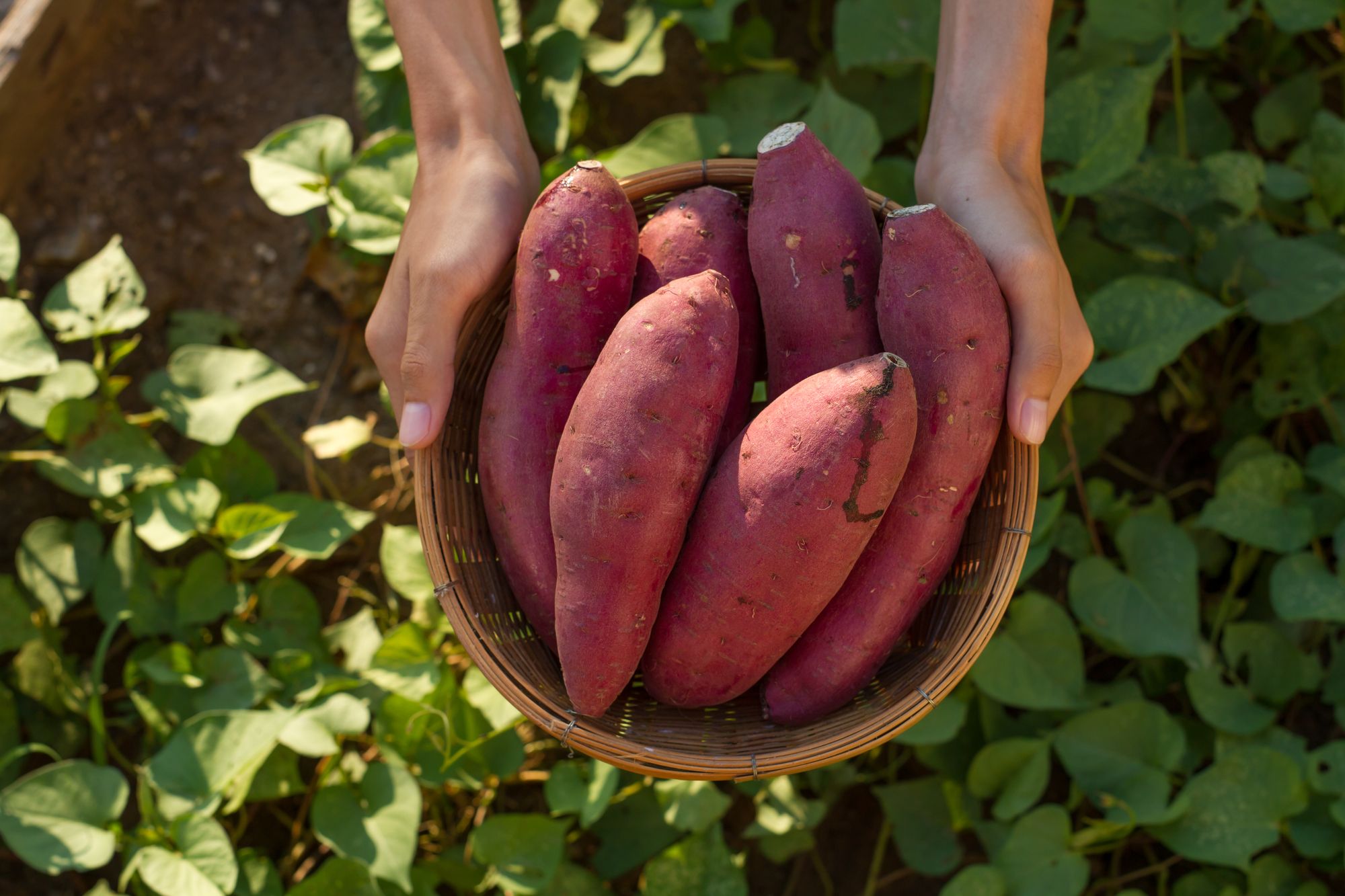
PER 1 CUP: 180 calories, 0.3 g fat, 72 mg sodium, 41.4 g carbs (6.6 g fiber, 13 g sugar), 4 g protein
Sweet potatoes offer a unique blend of both protein and fiber, making them an excellent choice for those seeking a weight loss-friendly vegetable. While they may contain more carbohydrates and natural sugars compared to some other vegetables, sweet potatoes can still support your weight loss goals, unless specifically instructed to restrict carbohydrates due to a health concern.
The high fiber content in sweet potatoes contributes to prolonged satiety without consuming excessive calories. These vegetables contain a specific type of fiber called viscous fiber, which slows down digestion by creating a gelatinous substance in the digestive tract. As a result, you experience an increased feeling of fullness, aiding in portion control and overall calorie reduction.
Moreover, sweet potatoes, similar to carrots, naturally contain sugars that contribute to their delightful sweetness. This makes them a delicious standalone snack or a natural way to add sweetness to various recipes, without relying on added sugars.
4) Cauliflower
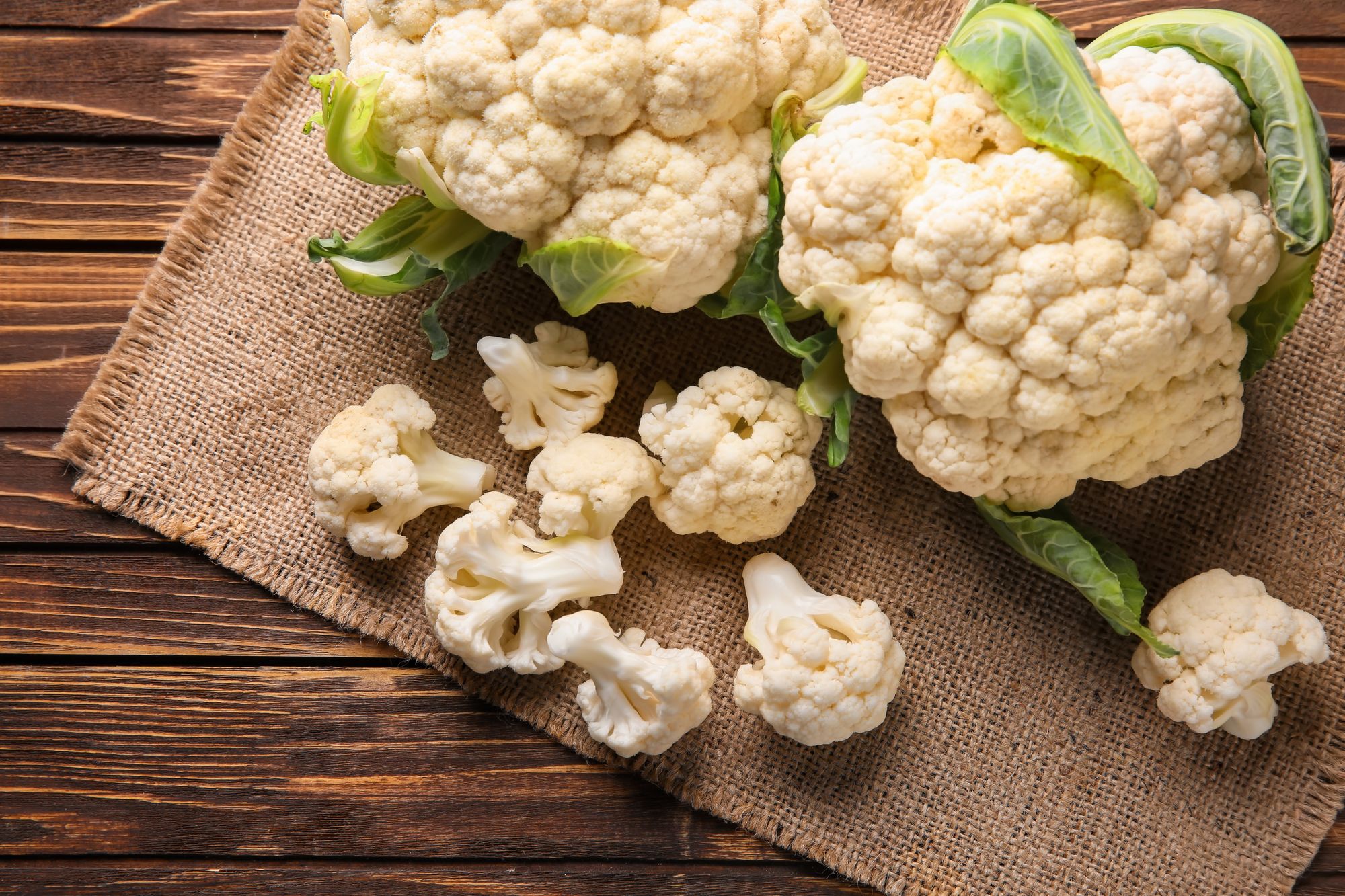
PER 1 CUP: 39.6 calories, 0.38 g fat, 32.1 mg sodium, 7.78 g carbs (4.1 g fiber), 3.76 g protein
As a member of the brassica family, which includes broccoli and Brussels sprouts, cauliflower stands out as a weight-loss-friendly vegetable. It is low in calories and offers a modest amount of fiber, making it a valuable addition to your diet. According to Lisa Young, PhD, RDN, author of "Finally Full, Finally Slim" and a member of our Medical Expert Board, this combination of low-calorie content and fiber makes cauliflower a winning choice for weight loss.
What makes cauliflower even more appealing is its versatility in the kitchen. It can be effortlessly incorporated into a wide range of dishes, allowing you to enjoy its benefits in various ways. For instance, you can substitute cauliflower rice for regular rice in stews or relish the goodness of steamed cauliflower as a delightful side dish.
With its low calorie count, fiber content, and culinary adaptability, cauliflower becomes an excellent companion in your weight loss journey. Discover the numerous possibilities and savor the benefits of this versatile vegetable as you work towards your weight loss goals.
5) Spaghetti Squash

PER 1 CUP CUBED: 41.8 calories, 0.4 g fat, 394 mg sodium, 10 g carbs (2.17 g fiber, 3.92 g sugar), 1.02 g protein
Spaghetti squash stands out as an exceptional vegetable for weight loss, thanks to its ability to serve as a healthy substitute for traditional pasta.
"For people with diabetes or those mindful of their carbohydrate intake, it's an excellent low-carb alternative that won't cause blood sugar spikes," affirms Lisa Young, PhD, RDN, author of "Finally Full, Finally Slim" and a member of our Medical Expert Board. However, even if carbohydrate control is not a concern, Young highlights that spaghetti squash remains a weight loss-friendly option due to its low-calorie content and fiber provision.
This remarkable vegetable not only satisfies pasta cravings but also supports your weight loss goals. It offers a significantly lower carbohydrate profile compared to pasta, making it suitable for individuals watching their carb intake. Furthermore, spaghetti squash is low in calories and provides a good amount of fiber, which contributes to a feeling of fullness and aids in weight management.
6) Broccoli
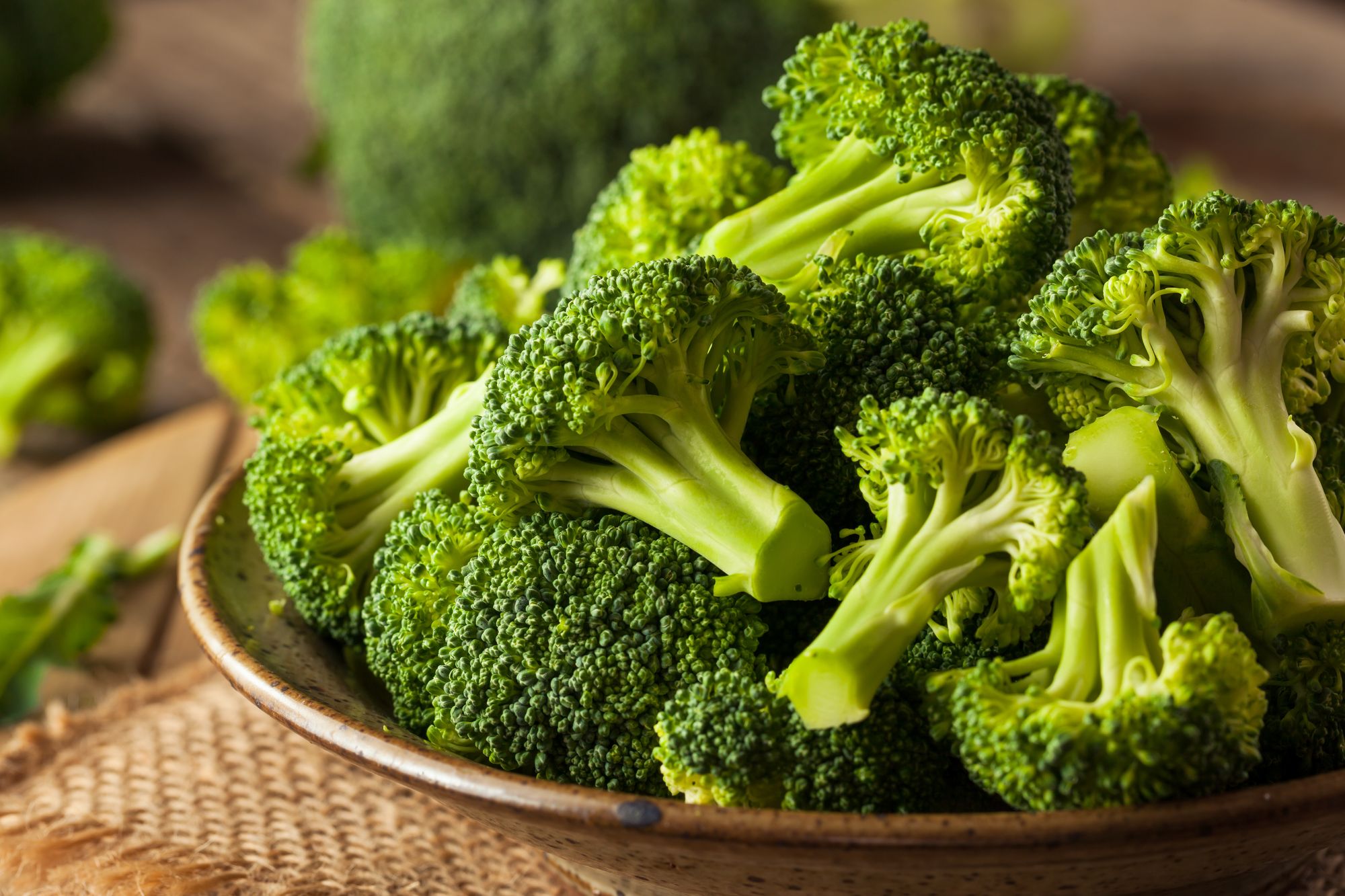
PER 1 CUP: 19.4 calories, 0.63 g fat, 6.6 mg sodium, 3.35 g carbs (2.2 g fiber, 0.74 g sugar), 1 g protein
Broccoli is a beloved vegetable cherished in various preparations, whether enjoyed raw, steamed, or sautéed. Its versatility goes hand in hand with its remarkable qualities as an aid in shedding a few pounds.
According to Trista Best, MPH, RD, LD, a consultant at Balance One Supplements, broccoli contains antioxidants that possess exceptional properties, including the ability to reduce inflammation within the body. This is significant because research reveals that chronic inflammation can contribute to weight gain. By incorporating broccoli into your eating plan, you can harness its anti-inflammatory benefits and potentially support your weight loss journey.
Sulforaphane, an antioxidant plant compound abundant in broccoli, plays a pivotal role in providing these anti-inflammatory advantages. Best explains, "Sulforaphane works by lowering cytokines and NF-kB, the substances that drive the inflammation process. When these are abundant in the body and allowed to persist, dangerous levels of inflammation can be reached."
7) Bell Peppers
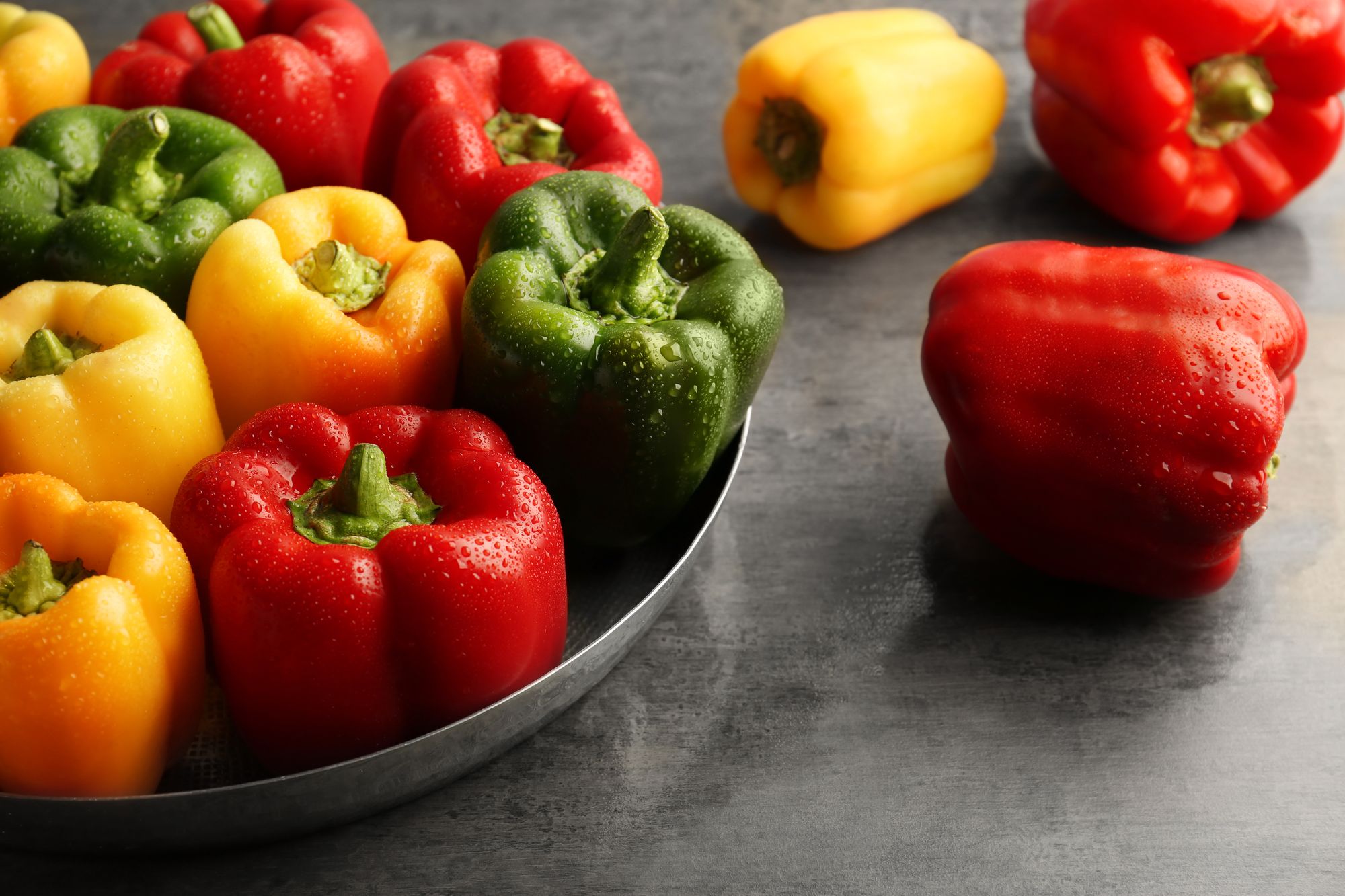
PER 1 CUP SLICED: 23.9 calories, 0.27 g fat, 3.68 mg sodium, 5.5 g carbs (1.93 g fiber, 3.86 g sugar), 0.91 g protein
Bell peppers are not only delicious but also boast a mild flavor that makes them versatile for various dishes. This culinary gem adds both taste and nutrition to your meals, making it an excellent choice for weight loss.
Registered Dietitian Trista Best emphasizes that bell peppers are ideal vegetables to incorporate into a weight-loss diet. They are low in calories, high in nutrients, and have the ability to create a sense of fullness after meals. This combination helps prevent overeating throughout the day, supporting your weight loss efforts.
Beyond their weight-loss benefits, bell peppers are packed with essential nutrients that significantly benefit the body. Best notes that while many people are unaware of their health advantages, bell peppers provide a powerhouse of nutrients. Notably, yellow bell peppers surpass oranges in vitamin C content, which supports immune health and enhances iron absorption.
8) Alliums
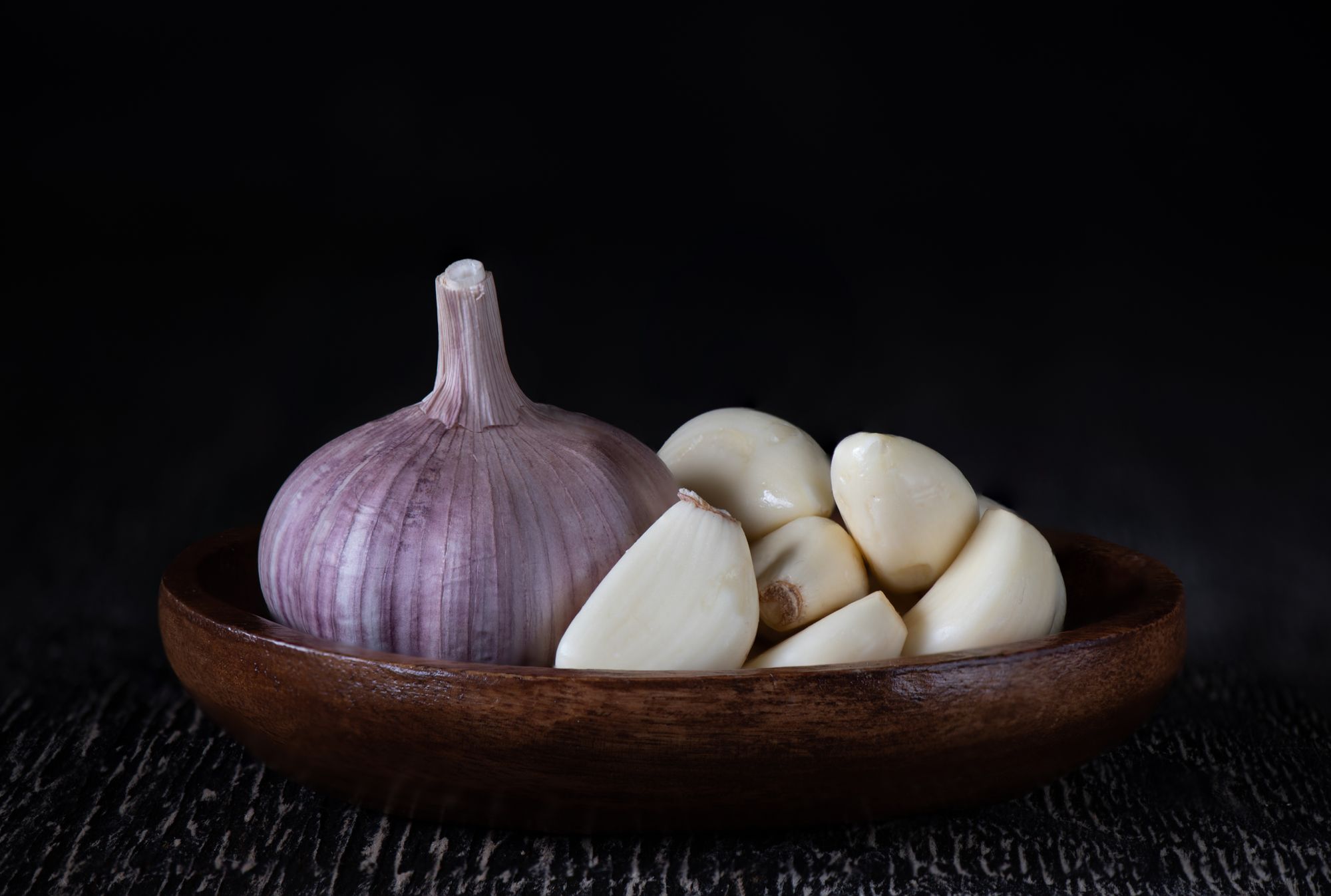
PER 1 CUP OF ONION, CHOPPED: 64 calories, 0.16 g fat, 6.4 mg sodium, 14.9 g carbs (2.7 g fiber, 6.78 g sugar), 1.76 g protein
Alliums, including onions, garlic, scallions, shallots, leeks, and chives, are culinary treasures packed with delightful flavors and significant health benefits. These versatile vegetables can effectively replace higher-calorie flavor additives, making them an exceptional addition to your wholesome meal plan.
Jonathan Isbill, MS, RD, LD, a registered dietitian, holistic health coach, and educator, highlights the versatility of these low-calorie, high-flavor vegetables. They can be utilized in countless ways, ranging from enhancing the taste of soups, sauces, seasonings, and salads to creating flavor-packed culinary experiences. By embracing the flavors of whole foods and making mindful swaps from ultra-processed dressings, sauces, soups, and packaged foods, you can effortlessly reduce your overall calorie intake. This approach not only retains familiar flavors but also ensures your meals are rich in nutrients, avoiding the empty calories associated with processed alternatives.
Moreover, onions, among the allium family, offer an additional advantage as a rich source of whole food prebiotics. These prebiotics play a crucial role in supporting a balanced and healthy microbiome, ultimately promoting optimal digestion and overall well-being. By including onions in your meals, you actively contribute to a thriving gut environment, nurturing your microbiome and enhancing digestive happiness.
9) Hot Peppers

PER 1 RED CHILI POD: 18 calories, 0.19 g fat, 4.05 mg sodium, 3.96 g carbs (0.67 g fiber, 2.38 g sugar), 0.84 g protein
If you're someone who enjoys a touch of spice in the kitchen, consider adding hot peppers to your next meal as a supportive element for weight loss.
Jonathan Isbill, an advocate of incorporating hot peppers and chili peppers into meal plans, explains their ability to elevate flavor and add a delightful heat to dishes. What sets these vegetables apart is their capsaicin content, a compound known to offer a range of benefits. Capsaicin has been linked to mood and metabolism enhancement, inflammation reduction, as well as the release of endorphins, which contribute to a sense of well-being. Additionally, capsaicin induces a thermic effect, increasing body temperature and potentially burning a few extra calories.
By incorporating hot peppers into your meals, you not only enhance flavor and add a pleasant heat but also harness the potential benefits of capsaicin for your weight loss journey. Embrace the fiery power of these vegetables as they spark your metabolism and potentially contribute to your calorie-burning efforts.
10) Beets
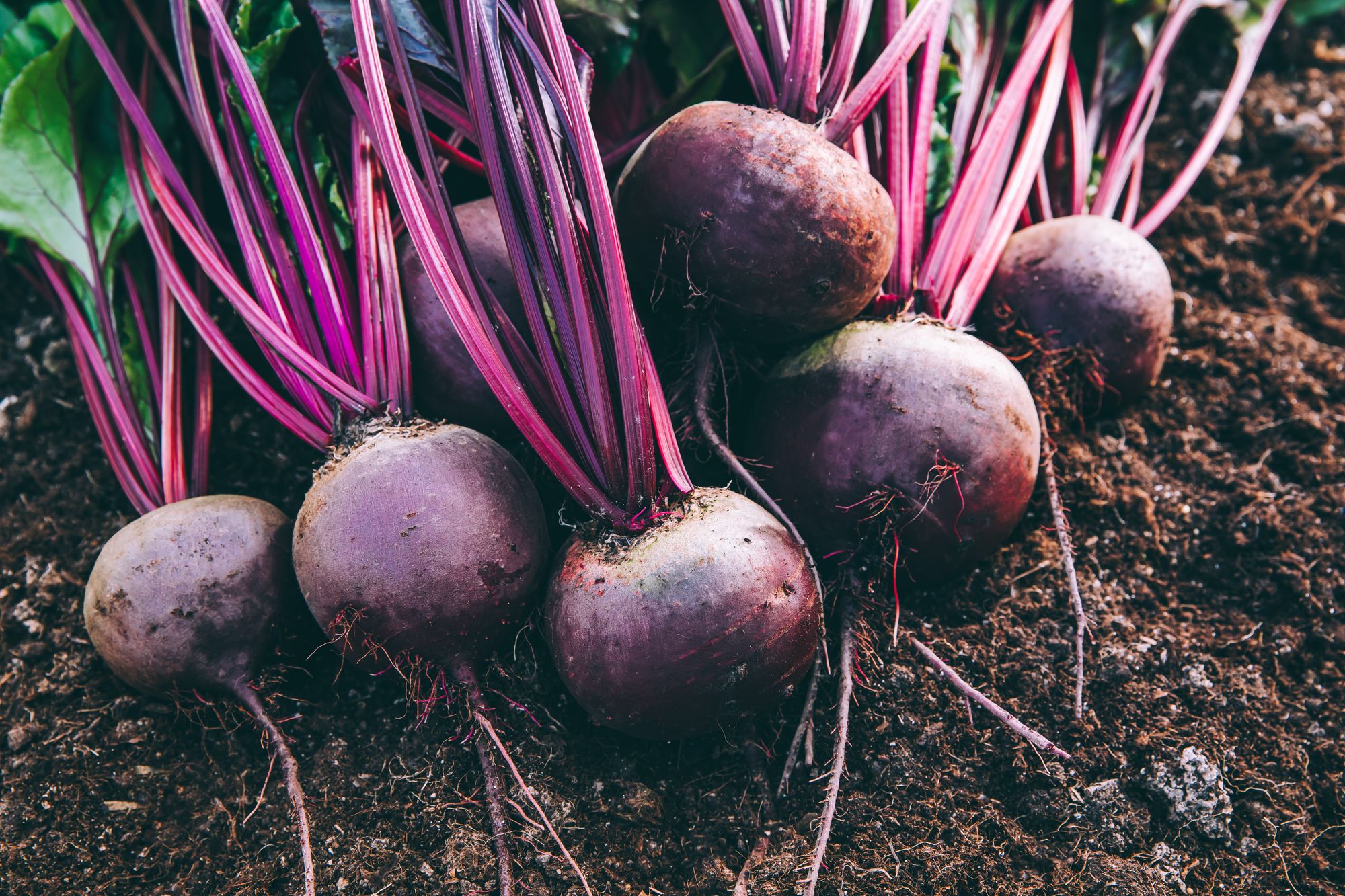
PER 1 CUP OF CANNED SLICES: 52.7 calories, 0.23 g fat, 330 mg sodium, 12.3 g carbs (3.06 g fiber, 9.37 g sugar), 1.55 g protein
If you're a beet enthusiast, you'll be delighted to discover the wealth of beneficial nutrients packed within this vibrant root vegetable, offering support for your weight loss journey.
Jonathan Isbill highlights the appreciation of beets among athletes and high performers due to their rich nitrate content, which helps increase nitric oxide (NO) levels in the body. This boost of NO can have a positive impact on various aspects, including fueling workouts, promoting blood flow, maximizing recovery, and potentially enhancing performance.
By incorporating beets into your diet, you can optimize the benefits of your fat-burning workouts, providing an added boost to your weight loss goals.
Beetroot juice is a popular option for many, but there are numerous other ways to enjoy the benefits of beets. Sautéing beet greens in a stir-fry, adding them to salads, or blending them in smoothies are all delicious ways to incorporate this nutritious vegetable into your meals.

